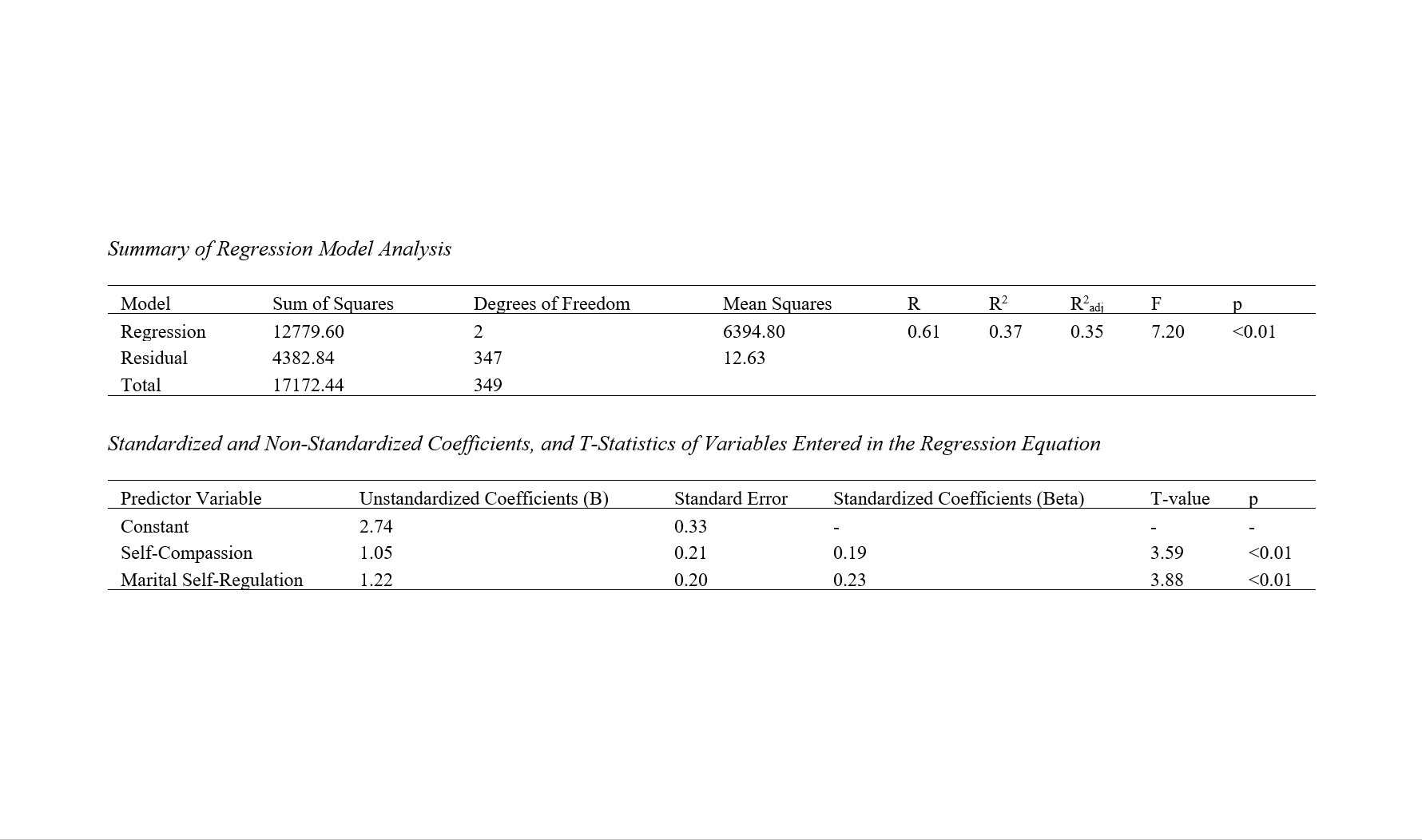Predicting Marital Adjustment by Self-Compassion and Marital Self-Regulation
Keywords:
Marital Adjustment, Self-Compassion, Marital Self-Regulation, Counseling, Married WomenAbstract
Abstract
Objective: The study aimed to investigate the predictive roles of self-compassion and marital self-regulation on marital adjustment among married women attending counseling centers in Tehran in 2023. It sought to enrich the understanding of how these psychological constructs contribute to marital satisfaction and stability.
Methods and Materials: A cross-sectional design was employed with a sample of 350 married women selected through available sampling from various counseling centers in Tehran. Measures included the Dyadic Adjustment Scale (DAS) to assess marital adjustment, the Self-Compassion Scale developed by Neff (2003) for evaluating self-compassion levels, and a 16-item scale by Wilson et al. (2005) for measuring marital self-regulation. Data analysis was conducted using SPSS 27, with linear regression analyses performed to explore the relationships between the constructs.
Findings: The findings revealed that both self-compassion and marital self-regulation significantly predicted marital adjustment among the participants. Specifically, higher levels of self-compassion and marital self-regulation were associated with better marital adjustment. The regression model explained 37% of the variance in marital adjustment scores, highlighting the substantial impact of these factors on marital satisfaction.
Conclusion: This study underscores the critical importance of self-compassion and marital self-regulation in fostering marital adjustment. The findings suggest that interventions aimed at enhancing these psychological resources could contribute significantly to improving marital satisfaction and relationship stability among couples, particularly those seeking counseling services.
Downloads

Downloads
Additional Files
Published
Submitted
Revised
Accepted
Issue
Section
License
Copyright (c) 2024 Zahra Alizadeh (Author); Farideh Dokaneifard (Corresponding Author); Azam Fattahi Andabil (Author)

This work is licensed under a Creative Commons Attribution-NonCommercial 4.0 International License.




















